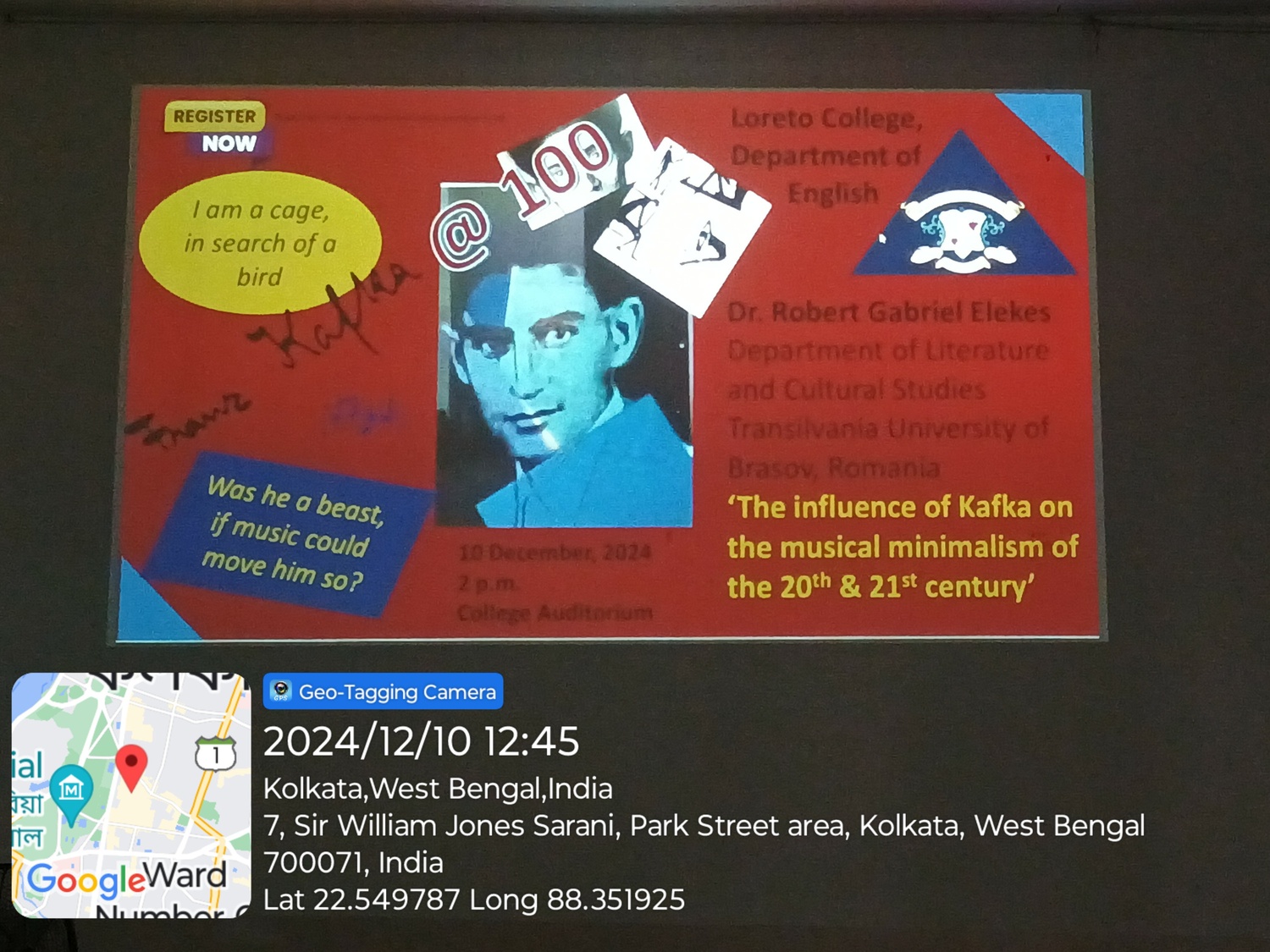Franz Kafka @ 100
On December 10, 2024, the Department of English, Loreto College, Kolkata organised a special programme to commemorate the centenary of Franz Kafka's death. The programme was conducted in a hybrid mode and attended by the UG and PG students and the faculty of the Department of English, Loreto College.
The first segment featured four student paper presentations. Somoshree Palit's (Semester I, PG) paper entitled "Death, the Performer: The Living Dead in Kafka's Parables" focused on the "inertia" of Kafka's characters, their redundant journeys, and the performative status of their deaths. Soumiti Das's (Semester V, UG) paper, "The Unsettled: Alienation and the Grotesque in Kafka and Bacon," drew on the confrontation of identities in a disjointed world, juxtaposing the frustration and self-alienation found in Kafka's writings with the deconstructed strokes and distorted figures of Bacon’s paintings. Anandi Chanda’s (Semester III, UG) "Orientalism and the Civilising Mission: Kafka's Penal Colony" read Kafka's "In the Penal Colony" in relation to the British Empire and interpreted it as an oblique critique of imperialism and colonisation. Finally, Bhuvi Sharma's (Semester III, UG) presentation on "Kafka and the Dionysian Spirit" examined Kafka's Artist through the lens of rapturous Dionysian rituals and art's all-consuming nature.
Thereafter began the second segment, where Dr. Robert Gabriel Elekes, Associate Professor at Transilvania University, Brașov, delivered his lecture entitled "The Influence of Kafka on the Musical Minimalism of the 20th & 21st Century." Delving into "minor literature" and the concept of subversion, he emphasised silence as an emancipator of language and Kafka's use of animal sounds to create intense, personal expressions. He supplemented the discourse by linking Kafka's paucity to qualitative, intense minimalism created by music. Dr. Elekes's interweaving of Kafka's texts with the music of Ernst Krenek, György Kurtág, Philip Glass, and Max Richter highlighted the multifaceted ways of reading and analysing Kafka.

 ANNOUNCEMENTS
ANNOUNCEMENTS

 ANNOUNCEMENTS
ANNOUNCEMENTS
